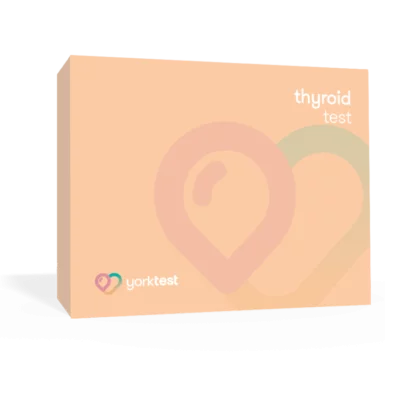
Why Blood Tests Are the Most Effective Way to Identify Food Intolerances
Food intolerances can be tricky to identify. Symptoms such as bloating, fatigue, skin flare-ups, or headaches can stem from a wide range of causes, which often leaves people guessing which foods are to blame. Traditionally, elimination diets and trial-and-error approaches have been used to uncover trigger foods, but these methods can be slow, frustrating, and inconclusive.
In this article, we’ll explore why blood tests are considered one of the most effective ways to identify food intolerances, how they work, and why a scientifically analysed, home-to-laboratory approach, like the test available here at YorkTest, provides clearer answers and lasting results.
Understanding Food Intolerances
A food intolerance occurs when your body struggles to digest certain foods, leading to unpleasant symptoms such as digestive discomfort, migraines, joint pain, or tiredness. Unlike food allergies, which involve an immediate immune reaction, intolerances often cause delayed responses, sometimes hours or even days after eating the trigger food.
Exactly how food intolerances are perceived can vary, but with cases on the rise, the acknowledgement of food intolerance as a medical condition becomes more and more prevalent. The NHS now recognises food intolerance as a condition that can affect overall wellbeing, noting that blood testing can play a role in identifying problem foods. This marks a positive step forward in helping people better understand and manage their symptoms.
Common Ways to Identify Food Intolerances
There are several methods people use to pinpoint intolerances:
- Elimination diets: temporarily removing foods from your diet and reintroducing them one by one to see which foods trigger symptoms.
- Symptom diaries: tracking what you eat and how you feel each day to find potential patterns.
- At-home testing options: using blood or hair samples to identify possible sensitivities.
While elimination diets and food diaries can be useful, they often rely on observation and guesswork. Symptoms can fluctuate, and reactions may be delayed, making it difficult to draw clear conclusions.
Why Blood Tests Offer a More Accurate Picture
Blood testing provides an objective, measurable way to identify food intolerances. Specifically, IgG (Immunoglobulin G) blood testing measures the levels of IgG antibodies that your immune system produces in response to particular foods. Elevated levels of these antibodies may indicate that your body is reacting to certain ingredients.
By analysing these markers, a blood test can highlight foods that may be linked to symptoms, providing a clear starting point for an evidence-based elimination and reintroduction plan.
Some of the main benefits of using blood testing to identify food intolerances include:
- The ability to test reactions to over 150 ingredients at once.
- Clear, easy-to-read laboratory results.
- Reduced guesswork compared to self-led elimination diets.
- Insights that can guide nutritional therapy and lifestyle changes.
The Science Behind IgG Testing
When you eat foods that your body struggles to digest fully, partially digested proteins can enter the bloodstream. In some individuals, this triggers the immune system to produce IgG antibodies. Raised levels of these antibodies can be a sign that your body is reacting to those foods.
While scientific discussion around IgG testing continues, there is growing recognition, including within NHS guidance, that blood testing can form part of the wider assessment process for food intolerances. Combined with professional nutritional guidance, these insights can help people make meaningful changes to their diet and wellbeing.
YorkTest’s approach goes beyond testing alone. Each test includes access to a qualified nutritional therapist who can interpret your results and help you build a manageable, sustainable plan for dietary improvement.
Why a Laboratory-Analysed Test Makes the Difference
Not all food intolerance tests are created equal. Tests that are analysed in a certified laboratory provide a much higher degree of accuracy and reliability than generic home kits.
YorkTest’s home-to-laboratory process ensures every sample is handled with precision:
- A simple finger-prick sample is taken at home.
- The sample is sent to YorkTest’s ISO-accredited laboratory, where it’s scientifically analysed by experts.
- You receive clear, easy-to-understand results, typically within seven days.
Every YorkTest kit also includes a consultation with a BANT-qualified Nutritional Therapist, ensuring your results are interpreted correctly and used to inform safe, effective dietary changes.
The Role of Elimination and Reintroduction
A structured elimination and reintroduction process is strongly recommended by most notable health care establishments, including YorkTest and the NHS. This means removing foods that show raised IgG levels for a period of time, then gradually reintroducing them one at a time while monitoring symptoms.
This approach helps to confirm which foods are genuinely problematic while reducing the risk of unnecessarily cutting out whole food groups. YorkTest also provides an online food diary and ongoing support through its Wellness Hub to make this process easier and more effective.
The YorkTest Difference
YorkTest has more than 40 years of experience in food intolerance testing and has helped thousands of people take control of their health.
What makes YorkTest unique is its combination of:
- Scientific accuracy: all samples are analysed in a UK-based ISO-accredited laboratory.
- Personalised support: every customer receives one-to-one guidance from a qualified nutritional therapist.
- Comprehensive resources: access to the YorkTest Wellness Hub and tailored aftercare.
- Trusted results: 82% of YorkTest customers reported a positive impact on their health and wellbeing.
YorkTest’s approach is consistent with NHS guidance on food intolerance and the role of blood testing, helping bridge the gap between scientific testing and practical lifestyle management.
Optimise Your Health Today
Food intolerances can have a significant impact on your daily life, from low energy and digestive discomfort to skin and mood changes. While traditional approaches rely on self-observation and restrictive diets, blood testing provides a clearer, evidence-based way to identify potential triggers.
With home-to-laboratory testing, expert nutritional guidance, and four decades of experience, YorkTest offers a reliable way to understand your body better and make meaningful improvements to your wellbeing.
If you suspect certain foods may be affecting your health, take the first step towards clarity and confidence with a YorkTest Food Intolerance Test. Contact us today.









